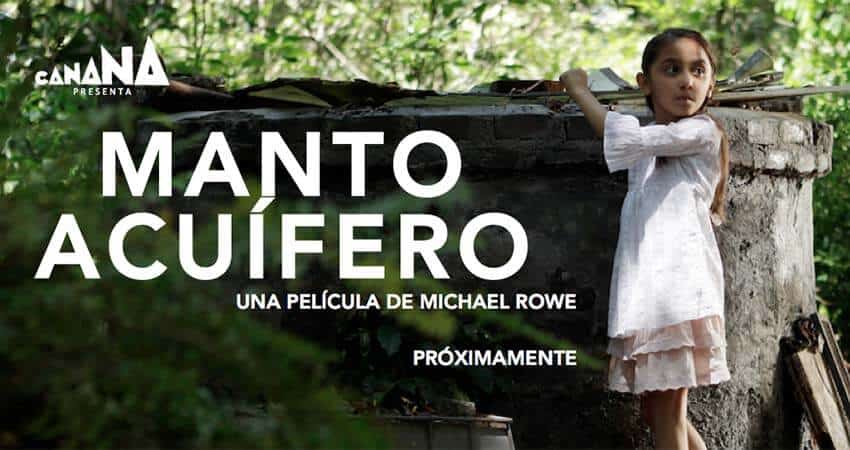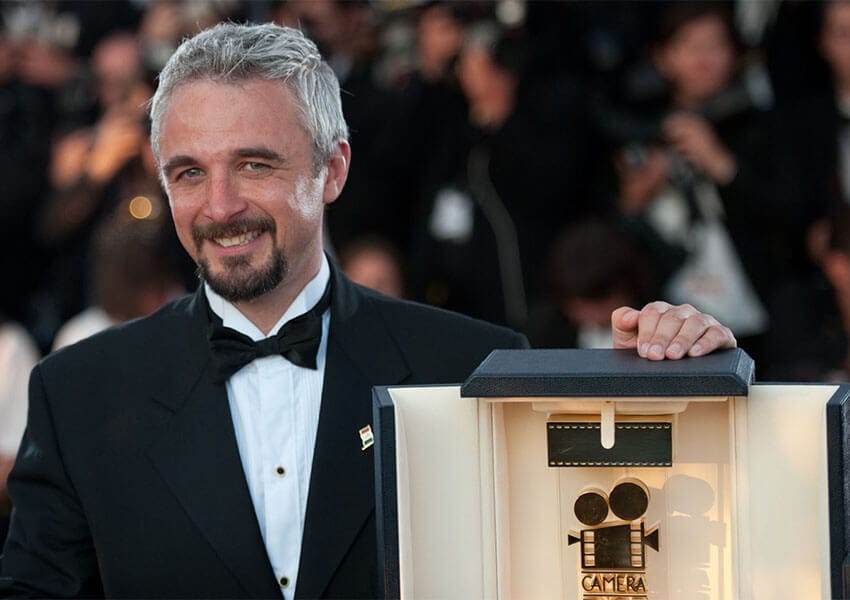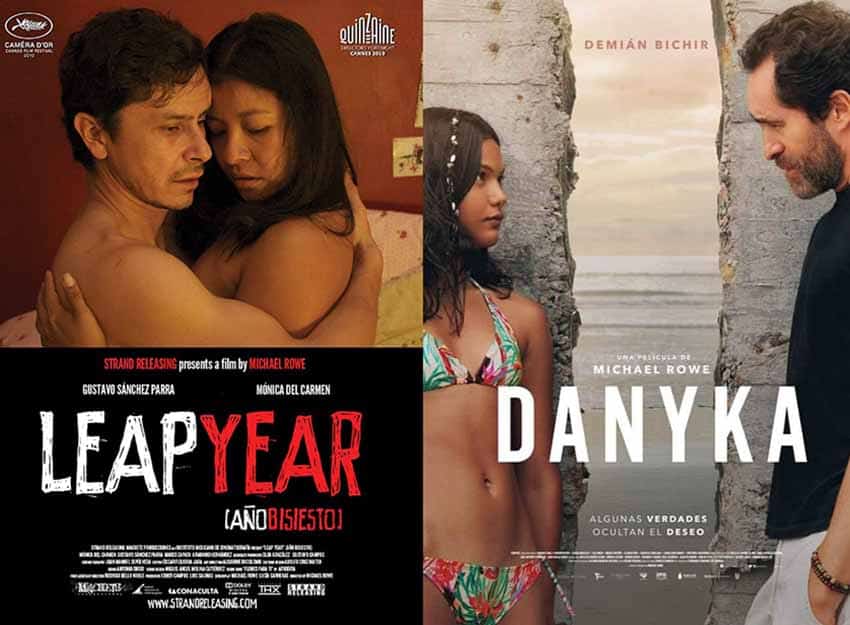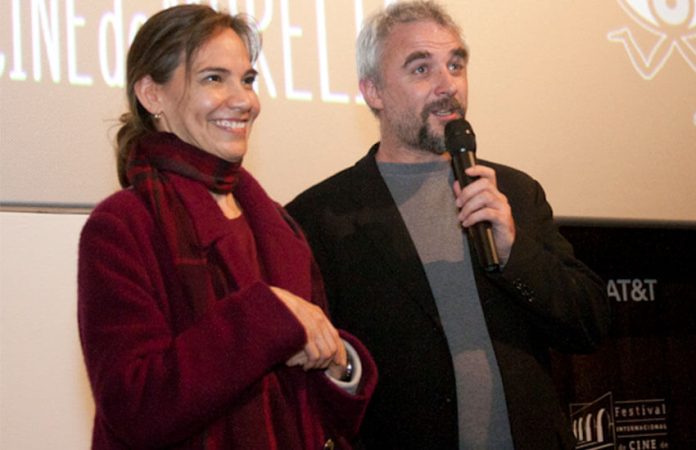Costa Rican-born singer Chavela Vargas is quoted as saying, “We Mexicans are born wherever the hell we want!” This quote might also apply to Australian–born Mexican director Michael Rowe.
Rowe grew up working-class in a town called Ballarat, near Melbourne, Australia, a world away from Mexico. Since age 12, he had been a prolific writer, convinced that his destiny was to “… change the face of English-language poetry…”
He earned a scholarship to college, but he was pressured to study archaeology. This caused one of a number of life “crises” that would eventually steer him to where he is now.
Still in college, he took his savings and went to Guatemala as an exchange student. There, he decided that indeed he wanted to be a writer and upon returning home, changed his major to English literature.

Not too long after, his plays and poetry began to get noticed, and things looked promising.
This initial success caught the attention of a theater group he highly admired, Australia’s Gudrun’s Stockings, who contacted him looking to collaborate on a project. He was highly flattered, but he was also working through another existential crisis.
He was absolutely sure of his destiny to be a major poet until his readings took him to the work of T.S. Eliot. Everything before made him think “I can do that,” but not Eliot; it was far beyond him. Devastated, he focused on plays, figuring that even if he couldn’t be the poet he wanted to be, he could at least make a living from plays.
The offer from Gudrun’s Stockings seemed ideal until he found out that the project was for television, something he and others at the time felt to be way beneath serious writers. So he did what any self-respecting artist would do: he bought a plane ticket out of Australia as far away as he could go.
He landed in Texas, then took a bus to Mexico City, again finding himself with no job and nearly broke. It was also 1994, the year of Mexico’s economic crisis. Despite all this, he found work as an English teacher and eventually began writing for English-language journals in the city.
His plan was never to stay in Mexico, but rather to travel the world, but Mexico worked its magic on him, and he is still here.
However, he had gone “cold turkey” from creative writing, he says, in part because he could not bring himself to write about Mexican characters in English. It didn’t seem right, and his Spanish was not yet good enough.
The lack of creative outlet affected his emotional health, and he decided to try writing plays in Spanish, figuring the intense use of dialogue and the present tense would be less strenuous on his still-developing linguistic skills.

Of course, playwrights want their work staged, but that means having connections, and Rowe had none. In 1996, he entered a screenwriting course at the Centro de Capacitación Cinematográfica, Mexico’s major cinema school. He completed the course, then looked for a director for his scripts for the next eight years.
He figured that if any of his scripts were going to get filmed, he would have to do it himself. He again quit his job and spent his savings to write a script and buy a camera. The result was Año Bisiesto (Leap Year). It was a long circuitous route, but the film caught the attention of a Cannes scout, leading to Rowe winning the Caméra d’Or, the prize for budding filmmakers.
This was the break he’d been looking for: Mexican and other funding sources that ignored him before were more amenable. He has since written and directed three more films, two in Mexico and one in Canada: Manto Acuífero (2013), Early Winter (2015), and Danyka (2020). He has also opened his own film school, the Escuela Itinerante de Cine y Narrativa (The Itinerant School of Film and Narrative).
Being a foreigner helps more than it hinders, in part because of malinchismo (“reverse racism,” he calls it), but also because foreigners bring a different perspective. Año Bisiesto focuses on an indigenous woman who is portrayed not only as a professional but also as having an active sex life, something not seen before on film in Mexico.
Rowe has chosen to keep Mexico as his professional base, even though he could have gone anywhere else after the Cannes win. Mexico allows him to be creative on his own terms as much as possible — not really the case in countries like Australia, Canada and the United States, he says.
As a filmmaker, he is 100% Mexican. He developed his craft here, and it is strongly influenced by Mexican writers and filmmakers such as Vicente Leñero, Fernando Eimbcke, Carlos Reygadas and Alejandro González Iñárritu, an artistic generation that has pushed for a more idiosyncratic style of filmmaking over the commercial and industrial work done in English-speaking countries. Rowe’s work is known in Australia, but it is considered foreign.
Cinematographic politics plays a role too. All filmmaking in countries like Australia and Canada is dependent on state monies and therefore state political priorities.
Hollywood is, well, Hollywood. Mexican filmmaking is also heavily dependent on state grants, but Rowe feels their system is “… as decent as you can get.” Films to receive funding are selected by committees of film professionals instead of bureaucrats.

This leaves out much of the political agendas that, frankly, would shut out many of his scripts, since they deal with topics and ethnic groups that certain governments would rather he not handle.
At the moment, he is taking a kind of break from feature filmmaking and working on smaller projects. The practical reason is that his wife is currently the minister of culture, which means that he cannot apply for grant money in Mexico.
This year, he worked on a small film with private funding. Next year, despite his reservations, he is working on his first Australian production.
Leigh Thelmadatter arrived in Mexico 18 years ago and fell in love with the land and the culture in particular its handcrafts and art. She is the author of Mexican Cartonería: Paper, Paste and Fiesta (Schiffer 2019). Her culture column appears regularly on Mexico News Daily.
